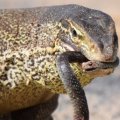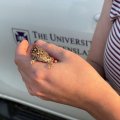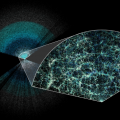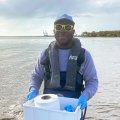A marine ecologist from The University of Queensland (UQ) has been awarded the prestigious Rosenstiel Award for his research work on protecting coral reefs.
Professor Peter Mumby, who works at UQ’s School of Biological Sciences’ Centre for Marine Science and The Global Change Institute, is the 37th recipient of the Rosenstiel Award, which is awarded to outstanding international scientists for their contributions to marine science.
Director of the Centre for Marine Science, Professor Bernie Degnan, congratulated Professor Mumby on the award.
“Professor Mumby’s work on developing conservation strategies for coral reefs has gained international attention and influenced conservation policy,” Professor Degnan said.
“He is utilising the very latest technology and strategies to find ways to save these iconic ecosystems. Professor Mumby has already delivered many positive outcomes for coral reefs around the world and is considered an international leader in coral reef science amongst his peers.”
Professor Mumby and colleagues have studied the impacts of marine reserves on Caribbean reefs and discovered that the direct effects of protecting fish can have profound indirect effects on the ecosystem. His findings have helped provide insight into the consequences of conserving herbivorous fishes, reducing nutrient runoff, conserving mangroves, and restoring urchin populations.
His research has influenced conservation policy, contributing to the implementation of a ban on herbivore exploitation in Belize and the identification of a marine park at Conception Island in the Bahamas.
Professor Mumby began his career in 1992 as a Science Coordinator at the Coral Cay Conservation in Belize, designing marine reserves, before moving on to the University of Sheffield where he received his PhD in coral reef remote sensing.
He is in the middle of a prestigious five-year Australian Research Council Laureate fellowship and is the “Oceans and Coasts” research focal area leader in the Global Change Institute. His worked has been published 85 journal articles, seven book chapters, and two books, including several first-author papers in Science and Nature.
Media: Kathy Grube, UQ Communications, 07 3346 0561, k.grube@uq.edu.au
About the Rosenstiel Award
The Rosenstiel Award honors scientists who, in the past decade, have made significant and growing impacts in their field. It is an award targeted for researchers that are already making outstanding scientific contributions in their early to mid-career stages. The University of Miami’s Rosenstiel School of Marine and Atmospheric Science administers the award and will present Professor Mumby with this year’s awards at a dinner next month.
The Rosenstiel Award, created through an endowment from the Rosenstiel Foundation, recognises outstanding scientists for their contributions to marine science and in oceanographically relevant areas of atmospheric science with a $US10,000 prize. It is awarded annually to one individual on a rotating basis for achievements in six broad disciplinary areas: marine geology and geophysics; meteorology and physical oceanography; marine and atmospheric chemistry; marine biology and fisheries; applied marine physics; and marine affairs.
About the Global Change Institute
The Global Change Institute at The University of Queensland, investigates complex, interconnected, large-scale global issues in innovative ways, in order to contribute evidence-based, progressive solutions to the major problems of a rapidly-changing world.
The Global Change Institute is a vehicle for collaborative research, learning, engagement and advocacy. It seeks to partner with third-parties and achieve multi-disciplinary, integrated solutions to global change issues within the existing and projected frameworks of those problems: political, environmental, social, economic and technological.
About the Centre for Marine Science
The Centre for Marine Science is part of UQ’s School of Biological Sciences and comprises one of the largest and diverse group of marine scientists and engineers in Australia, with over 50 independent research group leaders, 50 postdoctoral researchers and 200 PhD students.
With modern marine research stations located in the tropics and subtropics, the centre has access to some of the most biodiverse marine habitats on the planet. This combination - a huge pool of co-located marine scientists with complementary knowledge and skills, and a wide range of marine habitats at our doorstep – creates a unique and vibrant research environment. The Centre for Marine Science is located on UQ’s St Lucia Campus in Brisbane.











